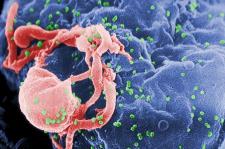Second Chinese team reports gene editing in human embryos
By Ewen Callaway,
Nature News
| 04. 08. 2016
Untitled Document
Researchers in China have reported editing the genes of human embryos to try to make them resistant to HIV infection. Their paper1— which used CRISPR-editing tools in non-viable embryos that were destroyed after three days — is only the second published claim of gene editing in human embryos.
In April 2015, a different China-based team announced that they had modified a gene linked to a blood disease in human embryos (which were also not viable, and so could not have resulted in a live birth). That report — a world first — fuelled global deliberations over the ethics of modifying embryos and human reproductive cells, and led to calls for a moratorium on even such proof-of-principle research.
At the time, rumours swirled that other teams had conducted similar experiments. Sources in China told Nature’s news team that a handful of papers had been submitted for publication. The latest paper, which appeared in the Journal of Assisted Reproduction and Genetics on 6 April, might be one of these. Nature’snews team has asked the paper’s corresponding...
Related Articles
By Katherine Long, Ben Foldy, and Lingling Wei, The Wall Street Journal | 12.13.2025
Inside a closed Los Angeles courtroom, something wasn’t right.
Clerks working for family court Judge Amy Pellman were reviewing routine surrogacy petitions when they spotted an unusual pattern: the same name, again and again.
A Chinese billionaire was seeking parental...
By Sarah A. Topol, The New York Times Magazine | 12.14.2025
The women in House 3 rarely had a chance to speak to the women in House 5, but when they did, the things they heard scared them. They didn’t actually know where House 5 was, only that it was huge...
By Sarah Kliff, The New York Times | 12.10.2025
Micah Nerio had known since his early 30s that he wanted to be a father, even if he did not have a partner. He spent a decade saving up to pursue surrogacy, an expensive process where he would create embryos...
By Carter Sherman, The Guardian | 12.08.2025
A huge defense policy bill, revealed by US lawmakers on Sunday, does not include a provision that would have provided broad healthcare coverage for in vitro fertilization (IVF) for active-duty members of the military, despite Donald Trump’s pledge...




